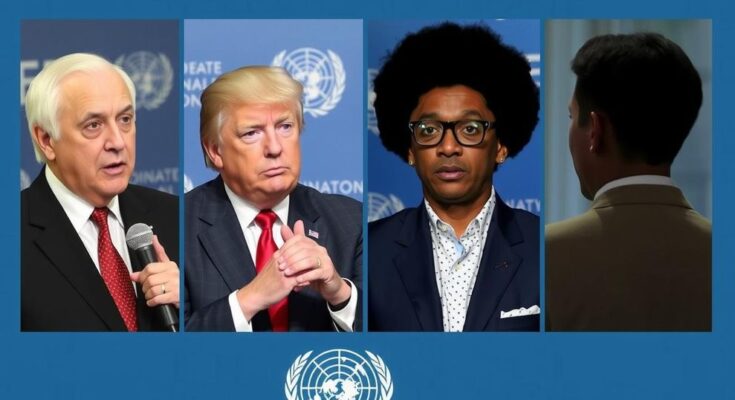Key leaders’ absences from this year’s COP climate conference reflect discontent with industrialized nations’ inaction on climate issues. Papua New Guinea and Argentina notably boycotted the event, with criticism aimed at the lack of financial support for climate-affected countries. Tensions arose further when France’s climate minister withdrew due to disparaging remarks made by the Azerbaijani Prime Minister. These actions provoke questions regarding the future of international climate agreements.
As the climate crisis intensifies globally, notable absences from this year’s COP climate conference have raised concerns among environmental advocates and policymakers alike. The Conference of Parties (COP) serves as an annual meeting point for world leaders, scientists, and advocates to address escalating climate issues affecting millions. This year, however, several countries, including Papua New Guinea, openly boycotted the event, signaling their discontent with the responses from industrialized nations.
Prime Minister James Marape of Papua New Guinea declared the decision to skip COP29 as a protest against major nations that contribute significantly to carbon emissions. He emphasized that these industrialized countries consistently fail to provide adequate support to developing nations like PNG, which struggle against the repercussions of climate change. “Our non-attendance this year will signal our protest at the big nations,” he stated, critiquing the gap between pledges made at COP and the actual financial aid received by climate-affected regions.
Argentina’s participation in COP29 was short-lived, as new President Javier Milei abruptly withdrew the country’s delegation. The far-right leader has expressed disbelief in climate change, raising apprehensions about Argentina potentially exiting the Paris Agreement. Additionally, leaders from many G20 nations attended COP29 but sent only representative delegates in light of other pressing matters within their respective countries.
A significant diplomatic incident occurred when France’s top climate official, Agnès Pannier-Runacher, opted out of the conference following comments made by Azerbaijani Prime Minister Ilham Aliyev, who disparaged France’s historical territories and their environmental practices. Pannier-Runacher condemned Aliyev’s remarks as unacceptable, highlighting the tensions that can arise amidst global climate discussions.
The controversies surrounding leader participation underscore the criticality of international cooperation in combating climate change, especially as the world sees ongoing crises stemming from extreme weather and environmental neglect.
The COP climate conference stands as a pivotal gathering aimed at facilitating international dialogue and collaboration to address climate change challenges. With nations increasingly affected by extreme weather events and environmental degradation, the urgency for collective action has never been greater. However, the participation of world leaders at these conferences is vital to garner support and ensure accountability among nations, particularly those that contribute significantly to carbon emissions. In light of recent boycotts from several key nations, including Papua New Guinea and Argentina, the effectiveness and commitment of COP gatherings are being called into question.
The absence of multiple countries from this year’s COP climate conference highlights significant discontent with the historical response of industrialized nations to the climate crisis. Papua New Guinea’s protest illustrates the frustrations faced by vulnerable nations receiving insufficient support. Meanwhile, the abrupt withdrawal of Argentina’s delegation underlines the potential retreat from established climate agreements by new leadership. Overall, these developments underscore the pressing need for renewed commitment and collaborative action among nations to tackle the global climate crisis effectively.
Original Source: abcnews.go.com




